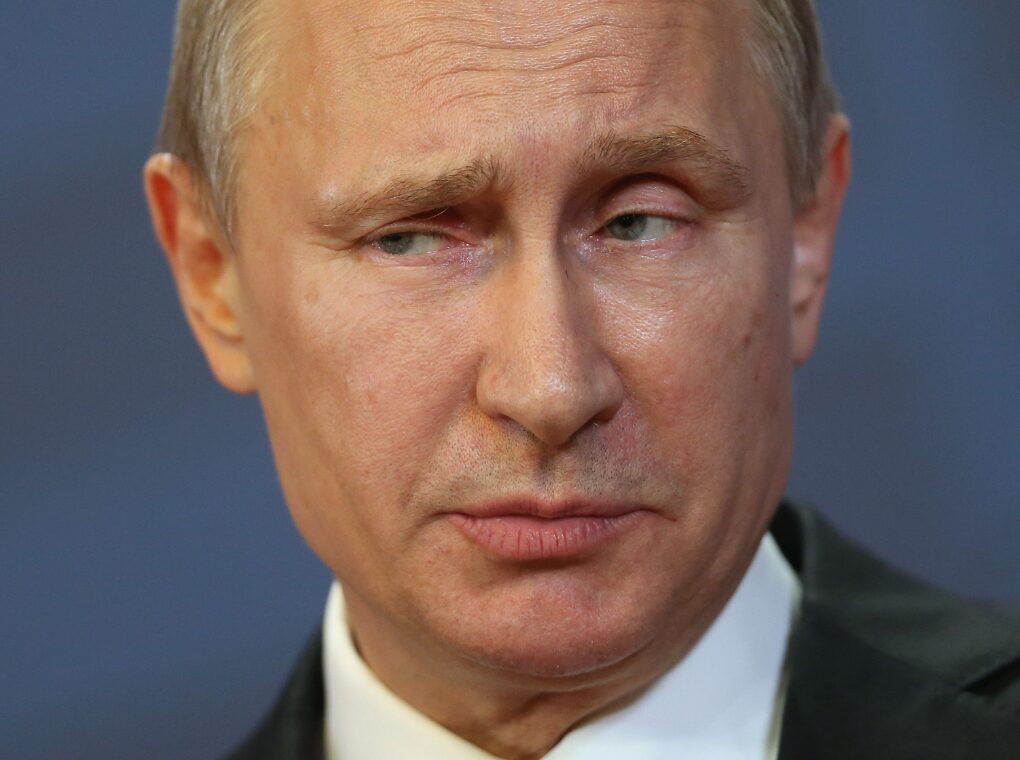Russian President Vladimir Putin has officially signed a law terminating the long-defunct Plutonium Management and Disposition Agreement (PMDA) with the United States — a Cold War-era disarmament accord designed to curb the use of weapons-grade plutonium and prevent the proliferation of nuclear weapons.
The move marks another significant step in the unraveling of decades of arms control frameworks that once served as cornerstones of global nuclear stability.
The Kremlin’s announcement on Monday formalizes what had already been a suspended agreement since 2016, when Moscow halted participation citing Washington’s “unfriendly actions” under former President Barack Obama. Now, nearly a decade later, the legal denunciation officially eliminates any residual obligation Russia had under the pact, signaling a definitive end to one of the last vestiges of post-Cold War nuclear cooperation between the two powers.
The End of a Symbolic Accord
The Plutonium Management and Disposition Agreement, originally signed in 2000 and later amended in 2010, committed both Russia and the United States to dispose of 34 metric tonnes of weapons-grade plutonium each — enough to construct roughly 17,000 nuclear warheads. The idea was to render the plutonium unusable for military purposes by converting it into reactor fuel for civilian nuclear power plants.
The accord was hailed at the time as a milestone in nuclear non-proliferation efforts, reflecting mutual confidence that the two largest nuclear powers could work together to reduce global risks. However, in practice, both sides faced significant technical and political hurdles. The U.S. struggled with the costs and logistics of building specialized facilities for plutonium conversion, while Russia developed its own alternative process that Washington viewed skeptically.
By 2016, amid worsening relations following Russia’s annexation of Crimea, Putin suspended Russia’s participation, accusing the U.S. of failing to meet its disposal obligations. The decision was a precursor to the current geopolitical standoff — a warning sign of Moscow’s growing frustration with Western policies.
Nuclear Diplomacy in Decline
Putin’s latest move to formally “denounce” the agreement comes as relations between Moscow and Washington hit their lowest point in decades, compounded by the ongoing war in Ukraine and escalating nuclear rhetoric. The timing is notable: just days after Putin claimed Russia had successfully conducted the final test of a nuclear-powered cruise missile, a weapon touted as capable of striking targets anywhere in the world and bypassing missile defense systems.
The Kremlin’s legal act coincides with rising tension between Putin and U.S. President Donald Trump, who recently called off a planned peace summit with the Russian leader, labeling it a “waste of time.” According to reports, Trump has grown increasingly frustrated with Putin’s refusal to accept a peace deal in Ukraine, dashing hopes for a diplomatic thaw.
For many analysts, the termination of the PMDA represents the final collapse of nuclear trust between the two powers. With major treaties like the Intermediate-Range Nuclear Forces (INF) Treaty already scrapped and the New START treaty hanging by a thread, the global arms control architecture appears to be disintegrating.
Putin’s Nuclear Posture Hardens
The move is consistent with Russia’s increasingly assertive nuclear posture since the full-scale invasion of Ukraine in February 2022. Within days of launching the offensive, Putin placed Russia’s nuclear forces on high alert, sending a clear warning to NATO and the West not to intervene directly in the conflict.
In 2023, he further signed a decree lowering the threshold for nuclear use, a decision that alarmed Western security experts. The revised doctrine suggests Moscow might consider nuclear deployment not only in response to nuclear attacks but also to large-scale conventional threats that endanger the existence of the Russian state.
By formally killing the PMDA, Putin is effectively declaring that the era of cooperative nuclear restraint is over — and that Russia’s strategic calculus now revolves around deterrence and dominance, not partnership.
A Blow to Non-Proliferation Efforts
The international community has reacted with concern. Western leaders accuse Moscow of nuclear sabre-rattling designed to intimidate adversaries and bolster domestic political narratives of defiance. The symbolic end of the PMDA further undermines global non-proliferation norms at a time when new nuclear powers, including North Korea and potentially Iran, are testing international resolve.
Experts warn that without mutual transparency or limits, both Russia and the United States could be headed toward a new arms race, reminiscent of the Cold War — only this time, with modernized arsenals, hypersonic weapons, and artificial intelligence-driven targeting systems.
For Washington, the challenge is twofold: maintaining a credible deterrent while avoiding escalation. The U.S. Department of Energy continues to hold large quantities of surplus plutonium, but without Russian cooperation, prospects for safe, verifiable disposal are now uncertain.
The Future of U.S.–Russia Nuclear Relations
Putin’s decision underscores the growing strategic mistrust defining modern geopolitics. Where the early 2000s saw collaboration on nuclear security and counterterrorism, the 2020s have ushered in a period of confrontation and isolation. The cancellation of the PMDA serves as both a legal and symbolic declaration: Moscow no longer views the United States as a partner in arms control but as a rival in a renewed era of great power competition.
As Putin doubles down on nuclear modernization and deterrence signaling, and with the U.S. reevaluating its strategic posture in Europe and Asia, the world faces a stark reality — the return of nuclear brinkmanship once thought buried with the Cold War.
The demise of the plutonium pact is not just the end of an agreement; it is the death knell of an entire philosophy of mutual restraint. The world now watches uneasily as two nuclear giants drift further apart — each convinced that peace can only be preserved through strength.
